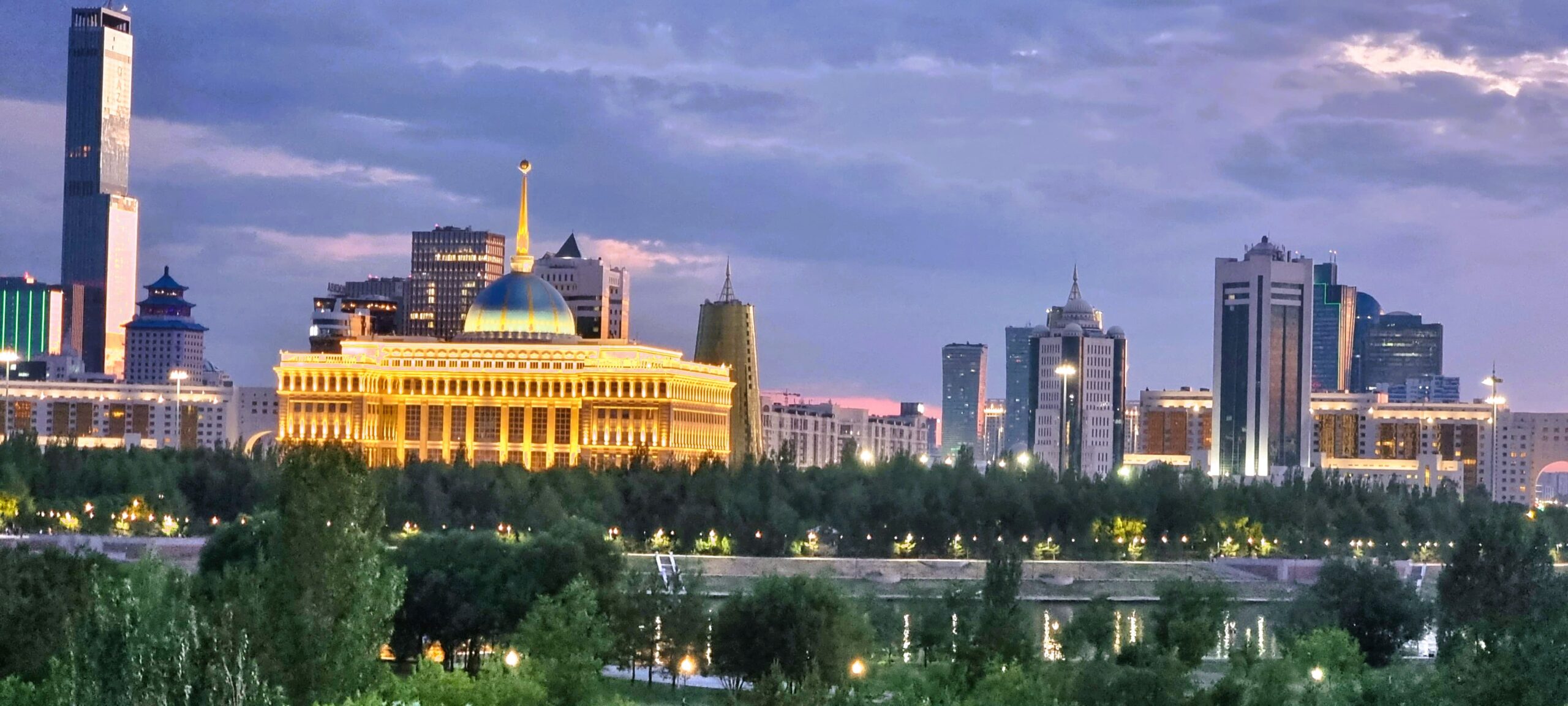ASTANA – The Astana Times has picked a selection of articles from global media outlets on news about Kazakhstan. This week’s foreign media digest covers the B5+1 forum in Almaty, Kazakh-Azerbaijani ties, foreign employees working in Kazakhstan, the Middle Corridor, and more.

Astana. Photo credit: The Astana Times/ Aiman Nakispekova.
United States launches initiative to foster Central Asian connectivity
The inaugural B5+1 forum, bringing together Central Asian government officials and regional business leaders, convened under U.S. auspices on March 14 in Almaty, reported Eurasianet on March 14.
“Success of what is being called the B5+1 process is far from a sure thing. The new-look vision rests on the ability of U.S. diplomacy to encourage local entrepreneurs and corporate leaders to work more effectively and efficiently with governmental officials in forging well-regulated economic systems. The private sector is expected to drive the process. Success is also contingent on a greater level of cooperation among the five Central States to break down trade barriers. The initiative applies a formula that has worked in the past, in which widening economic opportunity spreads prosperity that, in turn, fosters buy-in for a law-governed economic system. If the B5+1 process shows results, the expectation is that broader U.S. investment will follow,” the article reads.
Opening of Azerbaijan’s Zangezur corridor to create new opportunities for Kazakhstan – political analyst
Azerbaijani-Kazakh relations, which have deep roots, are successfully developing, political analyst Azer Garayev told Trend on March 11.
He noted that historical, cultural, and religious ties between Azerbaijani and Kazakh peoples are the basis of relations between the two countries.
“Traditional friendly and brotherly ties of our countries go back to the depths of centuries. The close relations of the heads of state make an important contribution to the relations between the two countries, serve the development and further strengthening of bilateral cooperation on an ascending line,” the political scientist added.
Garayev emphasized that the Kurmangazy Children’s Creativity Center was constructed in the Azerbaijani town of Fuzuli with the support of the Kazakh government.
He also noted that the efforts to open transportation and communication lines, within the context of the new regional realities, particularly the Zangezur corridor, are creating new opportunities for the Central Asian region, including Kazakhstan.
“The interests of our countries also coincide in this issue. Ties between Azerbaijan and Kazakhstan are successfully developing in all spheres, including the energy sector. The roadmap signed between SOCAR and KazMunayGas last year has created ample opportunities to expand ties,” he said.
Shinhan Financial Group actively promotes business activities in Kazakhstan
The Korea Post published an article on March 14 about a Korean card company’s activities in Almaty.
Shinhan Finance operates its main product, automobile installment financing (95% of total assets), and other credit and mortgage products (5% of total assets) through its head office in Almaty and three network offices (Astana, Shymkent, and Aktau).
The Shinhan Financial Group plans to become a top multi-finance company representing the Central Asian region within three years by expanding its business in the regions of products, channels, and markets by combining the financial know-how of Shinhan Card (Korea).
Shinhan Bank Kazakhstan (local subsidiary of Shinhan Bank in Kazakhstan) will not only help Korean business companies enter Kazakhstan but also contribute to strengthening efforts to attract funds from MNCs (multinational corporations).
Furthermore, the Shinhan Financial Group will strive to become a financial institution that can contribute to the economic development of Kazakhstan by providing loans to local customers in Kazakhstan in conjunction with MDBs (Multilateral Development Bank) and other organizations.
13,000 foreigners working in Kazakhstan
The Times of Central Asia released an article on March 13 citing the statistics issued by the Kazakh Ministry of Labor and Social Protection of Population.
According to the ministry, at the beginning of March, 13,088 foreigners were working in Kazakhstan with the permission of local executive agencies.
With reference to industry, most foreign citizens work in construction (4,281), manufacturing (1,380), mining and quarrying (1,304), agriculture, forestry and fisheries (834), and professional, scientific and technical activities (809). In terms of nationality, the highest representations in the foreign workforce were reported as follows: 4,121 citizens of China (31.4%), 1,176 citizens of India (8.9%), 1,128 citizens of Türkiye (8.6%), and 908 citizens of Uzbekistan (6.9%).
Kazakhstan’s emerging strategic role in diversifying Asia-Europe trade
BMI, a Fitch Solutions company, published an article on March 11 about the anticipated strong growth in Kazakhstan’s trade activity in the near term, “as shippers based in Europe and Asia increasingly divert their cargoes from traditional Red Sea passages and routes through Russia, in favor of more strategic alternatives.”
“Kazakhstan’s real trade growth is poised for robust expansion, with an anticipated annual growth rate of 5.7% in 2024 and 6.3% in 2025. This upward trend is expected to raise the country’s total trade volume to $187.2 billion by the end of 2025, up from $166.5 billion in 2023. We believe that robust growth is supported by the development of the Middle Corridor, which runs from Europe through the Caspian Sea, across Kazakhstan, and into Mainland China,” the article reads.
Kazakhstan aims to increase the volume of transportation along the Middle Corridor by 1.4 times
In 2023, the volume of transportation along the Trans-Caspian International Transport Route (TITR) increased by 65% to 2.94 million tons, reported the railway transport news portal Railway Supply on March 13, citing Kazakh Deputy Minister of Transport Satzhan Ablaliyev.
According to him, they plan to increase this indicator by 43% to 4.2 million tons in 2024.
“As of January 2024, the volume of transportation along the TITR has increased by 2.5 times compared to January 2023. At the same time, there is noted growth in transit of Chinese containers by almost three times,” noted the Kazakh official.

